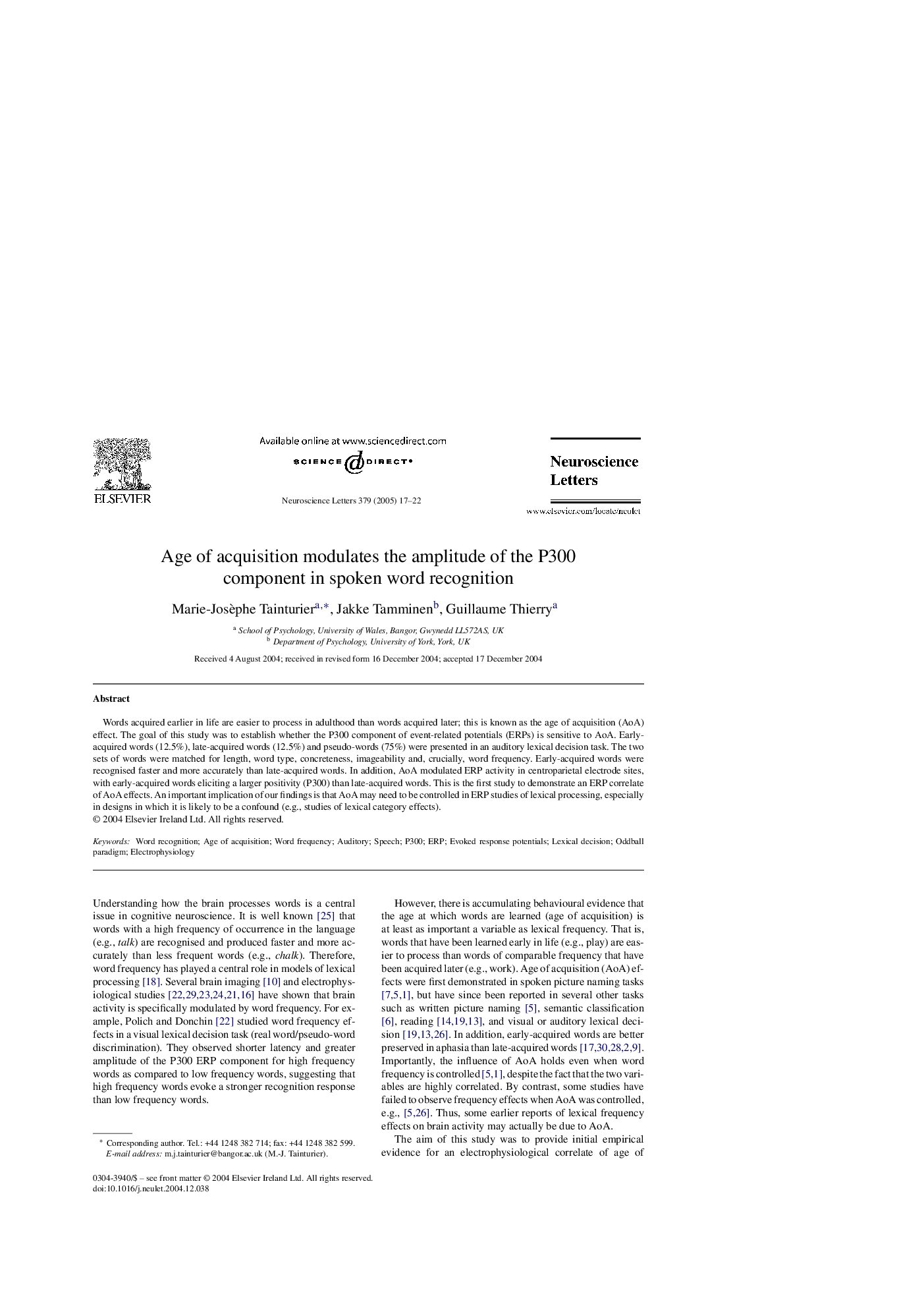| Article ID | Journal | Published Year | Pages | File Type |
|---|---|---|---|---|
| 9429282 | Neuroscience Letters | 2005 | 6 Pages |
Abstract
Words acquired earlier in life are easier to process in adulthood than words acquired later; this is known as the age of acquisition (AoA) effect. The goal of this study was to establish whether the P300 component of event-related potentials (ERPs) is sensitive to AoA. Early-acquired words (12.5%), late-acquired words (12.5%) and pseudo-words (75%) were presented in an auditory lexical decision task. The two sets of words were matched for length, word type, concreteness, imageability and, crucially, word frequency. Early-acquired words were recognised faster and more accurately than late-acquired words. In addition, AoA modulated ERP activity in centroparietal electrode sites, with early-acquired words eliciting a larger positivity (P300) than late-acquired words. This is the first study to demonstrate an ERP correlate of AoA effects. An important implication of our findings is that AoA may need to be controlled in ERP studies of lexical processing, especially in designs in which it is likely to be a confound (e.g., studies of lexical category effects).
Keywords
Related Topics
Life Sciences
Neuroscience
Neuroscience (General)
Authors
Marie-Josèphe Tainturier, Jakke Tamminen, Guillaume Thierry,
